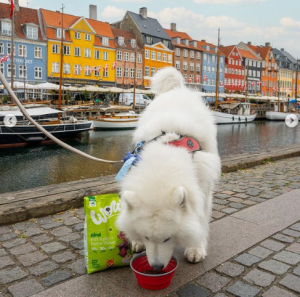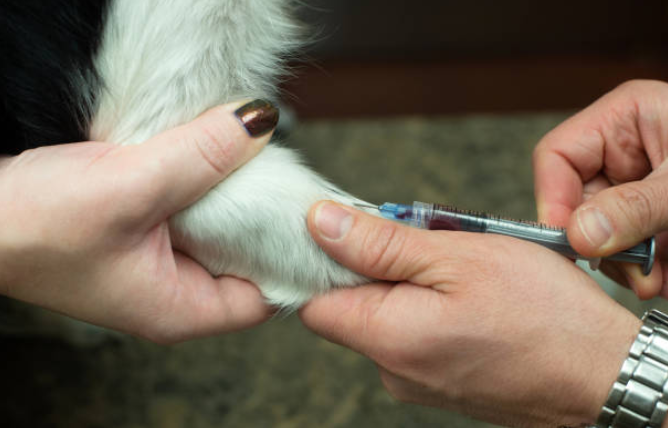
Dog Probiotics Food: The Benefits and How to Choose the Right One
Probiotics are microorganisms similar to the beneficial bacteria that naturally live in the digestive tract. They are also known as “good bacteria.” Probiotics can be found in some foods and supplements, and they have been shown to have several health benefits for both humans and dogs.
Benefits of probiotics for dogs
Probiotics can offer several health benefits for dogs, including:
Improved digestion
Probiotics can help to improve digestion by breaking down food and absorbing nutrients more efficiently. This can be especially helpful for dogs with digestive disorders like diarrhea, constipation, and inflammatory bowel disease.
More muscular immune system
Probiotics can help boost the immune system by fighting harmful bacteria and viruses. This can help to prevent dogs from getting sick and promote overall health and well-being.
Reduced allergies
Probiotics may help to reduce allergies by decreasing inflammation and improving gut health.
Improved skin and coat health
Probiotics can help to improve skin and coat health by reducing inflammation and promoting healthy skin cell turnover.
Fresh breath
Probiotics can help to freshen breath by reducing the growth of harmful bacteria in the mouth.
How to choose the right probiotic food for your dog
When choosing a probiotic food for your dog, it is essential to consider the following factors:
Strains of bacteria
Many different strains of bacteria can benefit dogs. Some common and well-studied strains include Lactobacillus acidophilus, Bifidobacterium lactis, and Enterococcus faecium. Look for a probiotic food that contains various themes for optimal benefits.
CFU count
CFU stands for colony forming units, a measure of live bacteria in a probiotic supplement or food. Look for a probiotic food with a high CFU count, at least 1 billion CFU per serving.
Delivery system
Probiotic foods can be delivered in various ways, including capsules, powders, chews, and treats. Choose a delivery system that your dog is most likely to eat.
Dog probiotic food brands and products
Several different dog probiotic food brands and products are available on the market. Some popular brands include:
- Purina Fortiflora
- Hill’s Prescription Diet i/d Canine
- Royal Canin Veterinary Diet Gastrointestinal Low-Fat
- Eukanuba Veterinary Diet Intestinal Health
- Iams Veterinary Formula Canine Digestive Health
You can also find probiotic foods and supplements at your local pet store or online.
How to feed probiotic food to your dog
Probiotic food can be fed to your dog as a daily supplement or added to their regular food. If you are providing your dog with a probiotic supplement, follow the dosage instructions on the label. If you are adding probiotic food to your dog’s regular food, start with a small amount and gradually increase the amount until your dog is eating the recommended amount per day.
Side effects of probiotics for dogs
Probiotics are generally safe for dogs, but they can cause side effects such as gas, diarrhea, and bloating in some cases. If you notice any side effects after giving your dog probiotics, stop them and talk to your veterinarian.
When to consult with your veterinarian
You should consult your veterinarian before giving your dog probiotics, especially if your dog has any underlying health conditions. Your veterinarian can help you choose the right probiotic food for your dog’s needs and monitor them for any side effects.
Conclusion
Probiotics can offer several health benefits for dogs, including improved digestion, a more robust immune system, reduced allergies, improved skin and coat health, and fresh breath. If you are considering giving your dog probiotics, choose a high-quality product and consult your veterinarian first.
Additional tips
Here are some additional tips for choosing and feeding probiotic food to your dog:
- Look for a probiotic food that is specifically designed for dogs. Human probiotics may not be as effective for dogs and could even cause side effects.
- Choose a probiotic food that is refrigerated or frozen. This will help to ensure that the live bacteria are active and viable.
- Do not cook if you add probiotic food to your dog’s regular food. Cooking can kill the live bacteria.
- Give your dog probiotics at the same time each day. This will help to establish a normal routine and maximize the benefits.
- If you are giving your dog a probiotic supplement, follow the dosage instructions on the label. Do not give your dog more probiotics than the recommended amount.
Other ways to boost your dog’s gut health
In addition to feeding your dog probiotic food, you can do several other things to boost their gut health.


